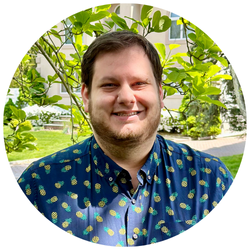"Read, read, read," William Faulkner proclaimed. "Read everything — trash, classics, good and bad, and see how they do it, just like the carpenter who works as an apprentice and studies the master. Read! You'll absorb it. Then write."

William Faulkner wrote numerous award-winning novels and short stories, and in 1949, his literary prowess was recognized with the Nobel Prize in Literature. The man obviously knew his craft, and he emphasized the importance of consuming art before creating it.
Who are we to disagree?
Let’s explore this technique of creating inspiration for yourself no matter what the muses may be thinking.
Be a Reader, Then a Writer
Being a reader is an essential part of being a writer. Reading others’ works immerses you in their approaches and broadens your experiences.
Read across your genre or area of expertise — and outside of it. Doing so not only exposes your mind to the writers excelling in your field, but also introduces you to a completely different writing world, expanding your point of view (literally!) and pushing you to test new techniques.
"If you don't have time to read, you don't have the time (or the tools) to write. Simple as that," Stephen King, the "King of Horror," once said.
Notice that mention of not having the correct "tools"? That phrasing is telling. King is implying that the tools we need to write go far beyond grammar and spelling.
In fact, Stephen King has spent considerable time immersing himself in other genres. Those who only know him by his mainstream works may be surprised to hear that he has stretched his writing muscle in the worlds of crime fiction, science fiction, and fantasy, as well.
And this exploration shouldn't be limited to literature.
Treat Yourself to an Artist Date
While reading is a great way to improve your writing, writers are not limited to words when seeking inspiration. Exposing oneself to different artistic mediums can spur creativity and provide boundless inspiration.
Julia Cameron, author of The Artist's Way, introduced the popular concept of "artist dates." She explains the idea as a solo activity or excursion to spark imagination.
By immersing ourselves in various art forms and unique experiences, we create a richer worldview and gain insight that can affect our writing processes in the best way.
Cameron suggests literally taking yourself on a date. Leave behind your partner, your friend, and even your dog — this is an event for you and your brain.
Don't focus on productivity, but rather a superb sense of play.
Easier said than done in today’s productivity-obsessed world, isn’t it? That’s why Cameron suggests treating it as a date. Plan an artist date once a week and keep to it.
Just don’t stand yourself up.
Literally take yourself on a date. Leave behind your partner, your friend, and even your dog — this is an event for you and your brain.
How to Fuel Your Creativity
If the concept of consuming art for inspiration sounds promising, but you need help figuring out where to start, we can help. In addition to reading, you can explore visual mediums of art, performing arts, film and television, digital media, music, and even nature.
Here are a few ideas on how to commence your inspirational journey:
- Read anything and everything: Take a break from your typical reading and explore genres you might not usually consider.
- Explore history: Find inspiration in stories of the past at your area's history museums and historical associations.
- Go to a live event: Watch a concert, play, or musical in person to experience different storytelling methods.
- Watch award-winning films and TV: Examine how screenwriters tackle shared challenges such as character development and dialogue. Go watch a movie in a theater for an extra-special date.
- Wander through an art museum: Visit a local art museum and wander through without a plan or guide.
- Play a video game: Yes, this counts! See how game developers tell stories and immerse players in other worlds.
- Learn from others: Read advice from other writers and creatives, such as here on the Freewrite blog.
- Switch your music: Listen to a different genre, check out what's trending, or catch up on oldies outside your comfort zone. Dance to different genres without judging yourself for how the music moves you.
- Immerse yourself in nature: Go for a nature walk or travel to a new place. Note the colors, textures, and creatures that populate this new place.
- Eat at a new restaurant: Order something you’ve never had before and eat slowly, describing each new taste to yourself.
In other words: Consume and experience what calls to you.
Only you will know what sparks your creativity as a writer, and the best way to get started is to experiment.





























